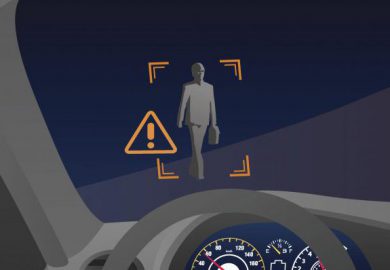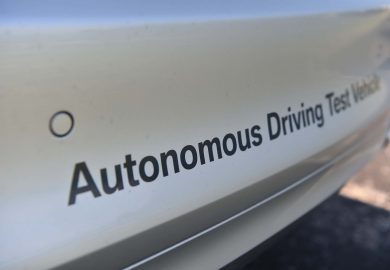Autonomous cars come with a vast array of sensors: ultrasonic sensors, image sensors, cloud sensors, and radar and LIDAR sensors. GPS receivers and cameras on these cars will create data too. A Level 4 or 5 self-driving car is expected to generate up to 100 GB of data per second. When self-driving cars become mainstream, which a lot of experts think will happen sometime in the next 10 years, they will need to share this mountain of data with other autonomous cars on the road.
Traffic, accidents, and other useful information will be inferred from the data obtained by this myriad of sensors, communicated to the network to help these automatons and their human passengers avoid potential problems. These cars will also read information from road sensors and satellites in order to navigate streets and terrain and to get climate, temperature, and weather information. Data mining can take all of this massive amount of data and help autonomous cars avoid crashes, drive more safely, and mitigate traffic issues.
Getting to Know You
As much time as humans will be riding in them, autonomous cars will be in a position to gather a lot of information about their passengers. Obviously, if the human is driving, the car will know how fast the driver is driving, where they started, where they are stopping, and similar trip information. But, the truth is that self-driving cars will be able to build an intimate profile of our life patterns over time. Cars will be able to use biometrics to determine who is in the car.
What would your car want with all of this personal information? In an age of big data, all of this information is incredibly valuable. Companies like Google and Facebook sell profiles composed of demographic, preference, and search history data. Their gathering of user information is a large part of their business models. Your car will know things like places you frequent and places you avoid. They will know what you are doing and how often you do it. Autonomous cars will also know what your method of payment was, assuming that renting becomes more common than ownership. Human drivers could be spied upon, with the self-driving car reporting poor driving, speeding, and other risk factors to your insurance company, which could use the information to justify raising your insurance rates.
Another thing to consider is that in Level 4 where there is a high potential for the driver to not be actively engaged in driving, or in Level 5, where the occupant or occupants are largely passengers, these humans are free to safely consume entertainment and educational materials or even do some work. This constitutes a captive audience who may be extremely receptive to ads or suggestions relating to these activities.
This information is a veritable goldmine in an age of analytics. From the data gathered by your autonomous car, you could be alerted that you are close to a store you love and be given information about what’s on sale at that moment. Big-data-driven parking solutions that help drivers find a parking space in a garage are already available.
Privacy Concerns
In 2016, under the Obama administration, the United States Department of Transportation, or USDOT, released a safety checklist for autonomous and semiautonomous cars, the first checklist of its kind. Among the 15 points listed, one called for car owners to understand the type of data being collected and to have the ability to reject the collection of any personal information. The National Highway Traffic Safety Administration, or NHTSA, which is itself a branch of the USDOT, released a new document in which privacy plays a much smaller role. One of the footnotes declares that such privacy concerns are “not directly relevant to motor vehicle safety” and that they are consequently the realm of the Federal Trade Commission, or FTC. This seems to be the federal government’s way of stepping out of the way with regard to the massive amounts of data collection that will make autonomous cars a very lucrative industry.
Some manufacturers have voluntarily acceded to a list of principles regarding privacy. These car makers have formed an organization they call the Alliance for Automobile Manufacturers. The 12 companies composing it include Ford, GM, and Toyota. The list of principles includes a promise to keep some data private, but it admits that some data may be used for marketing. The companies claim that a car owner’s consent would be requested before any information was sold. Since these rules are voluntary, it is unlikely any punishment would come from a company’s failure to adhere to these principles.























